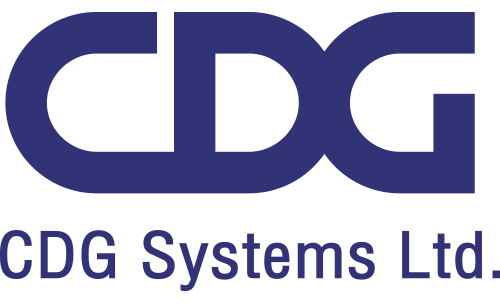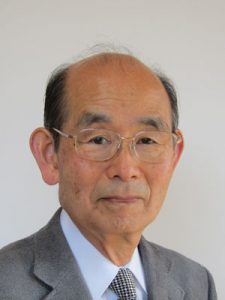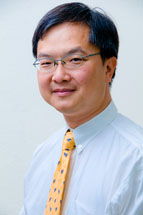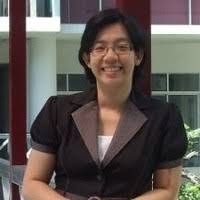BOOK OF ABSTRACTS
ABOUT
The 10th International Conference on Advances in Information Technology (IAIT2018), with the theme of “Leveraging AI and IoT in a Smart Digital Society”, will be held in Bangkok, Thailand, December 10-13, 2018.
IAIT2018 In today’s inter-connected global environment, digital technologies are fast becoming ubiquitous in everyday life. The rapid emergence of aging societies around the world prompts more urgent needs for having more affordable and easy to set up “Smart Digital Societies”, in which assistive technologies are used inside homes and offices with high performance and efficiency obtained by leveraging Artificial Intelligence (AI) and Internet of Things (IoT) solutions and platforms. Adoption of IoT and AI technologies such as those found in smart tracking devices, smartphones, and other embedded devices, enhances existing information systems and adds the dimension of mobility. Such advances expand the horizon of endless possibility in research and development in a Smart Digital Society.
The reviewing process of the IAIT conference aims to provide authors with constructive feedback on their papers, even when a submission is rejected. All submissions will be subjected to double-blind peer reviews by at least three (3) reviewers, who are experts or have much experience in related field for years. The accepted papers must be revised, taking into consideration the referees’ comments and suggestions, before inclusion in the conference proceedings, to be published by ACM Digital Library (EI and SCOPUS indexed). IAIT2018 will be collocated with CSBIO2018, providing great opportunity for IAIT participants to meet researchers in other related fields as well.
IMPORTANT DATES
Date of conference: 10-13 December 2018
Full manuscript submission deadline: 20 July 2018 22 September 2018 (Extended)
Notification of acceptance: 15 October 2018
Camera ready manuscripts: 1 November 2018
CALL FOR PAPERS
The topics cover the following areas in Advances in Information Technology, including, but not limited to:
• Food Security
• e-Business, e-Government, e-Learning, e-Health
• IT Ethics/Legal/Policy Issues
• Virtual Reality (VR) Applications
• Crowdsourcing And Social Networking
• Cyber-physical Systems
• Intelligent Mobile and Web Applications
• Cloud & Grid Computing, P2P, Distributed Systems
• AD HOC Networks, Real-time Streaming Networks
• Software Defined Networks, Sensor Networks
• Data Centers and Service Computing
• Internet of Things (IoT)
• Security and Privacy
• Big Data, Business Intelligence
• AI,Machine Learning, Deep Learning
• Data Mining, Text Mining, Graph Mining
• XML and Information Integration
• DBMS, NoSQL, NewSQL
• Bioinformatics and Health Informatics
• Geometric modeling and processing
• Classification and composition of visual media
• Enhancement and re-rendering of visual media
• Geometric computing for images and video
• Machine learning for visual media
• Visualization and visual analytics
There are 4 tracks covering all suggested topics:
The “Smart Digital Society” theme include (but not limited to):
Track 1 : Smart e-services and Internet Applications
- Food Security
- e-Business, e-Government, e-Learning, e-Health
- IT Ethics/Legal/Policy Issues
- Virtual Reality (VR) Applications
- Crowdsourcing And Social Networking
- Cyber-physical Systems
- Intelligent Mobile and Web Applications
Track 2 : Smart Networks and Computing Platform Technologies
- Software Defined Networks, Sensor Networks
- AD HOC Networks, Real-time Streaming Networks
- Cloud & Grid Computing, P2P, Distributed Systems
- Data Centers and Service Computing
- Internet of Things (IoT)
- Security and Privacy
- Agtech
Track 3 : Smart Data Management and Analytics
- Big Data, Business Intelligence
- AI,Machine Learning, Deep Learning
- Data Mining, Text Mining, Graph Mining
- XML and Information Integration
- DBMS, NoSQL, NewSQL
- Bioinformatics and Health Informatics
Track 4 : Smart Visual Media
- Geometric modeling and processing
- Classification and composition of visual media
- Enhancement and re-rendering of visual media
- Geometric computing for images and video
- Machine learning for visual media
- Visualization and visual analytics
SUBMISSION
Prospective authors are invited to submit original, high qualitymanuscripts of full paper (up to 8 pages including references), shortpaper (up to 4 pages with one additional page for references) and posterpaper (up to 2 pages including references). All submissions must beformatted using the ACM Proceedings Template (using sigconfformat/template) and should consist of one single PDF file.
All accepted papers will be discoverable immediately upon publication inthe ACM Digital Library and indexed by EI and Scopus.
(i) The explicit indications of authors’ names and affiliations as well as acknowledgements must be removed or hidden.
(ii) The papers should not contain any statements which refer to authors’ identity. Authors’ names, affiliations, and acknowledgments will be returned to the printed manuscript upon acceptance for publication.
The reviewing process of the IAIT conference aims to provide authors with constructive feedback on their papers, even when a submission is rejected. All submissions will be subjected to double-blind peer reviews by at least two (2) reviewers, who are expert or have been experiencing in the related field for years. The accepted papers must be revised, taking into consideration the referees’ comments and suggestions, before inclusion in the conference proceedings.
The submission of a paper implies that the paper is original and has not been submitted and published elsewhere.
In addition, at least one full registration is required per accepted paper, and the paper must be presented by an author if accepted.
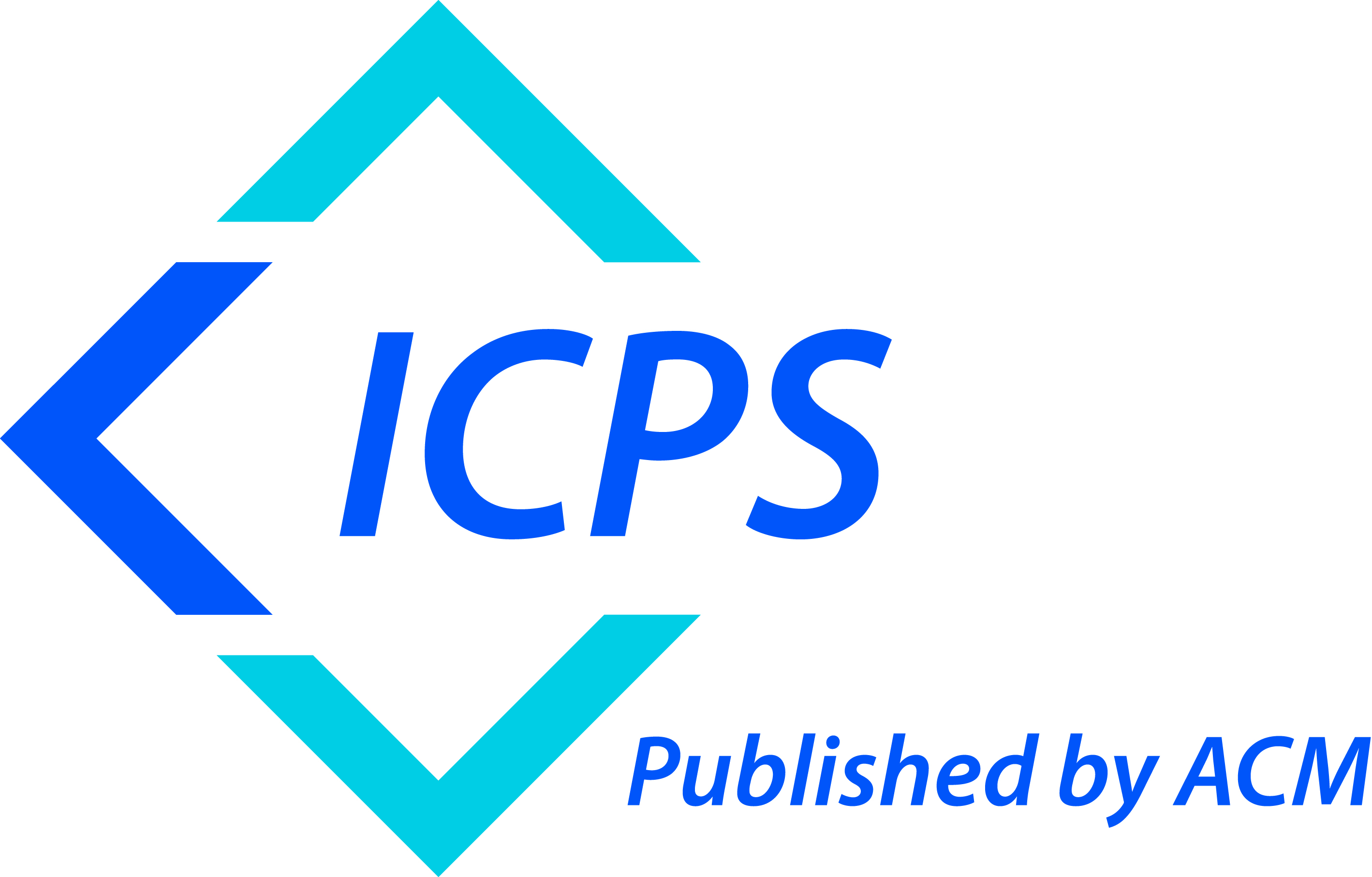
The templates guide is: http://www.acm.org/publications/article-templates/proceedings-template.html/. If you have any problems with the templates, please contact ACM’s TeX support team at Aptara (acmtexsupport@aptaracorp.com).
IAIT2018 use EasyChair conference system to manage paper submission. In order to submit paper(s) to IAIT2018, you must login to EasyChair website
If you already have EasyChair account, please loginor go to this URL https://easychair.org/conferences/?conf=iait2018
If you do not have an EasyChair account, please follow the steps below.
1. Go to EasyChair account request pageor go to this URL https://easychair.org/conferences/?conf=iait2018 Enter your information to request for creating account.
2. You will get an automatic replied e-mail from EasyChair with the URL link to create EasyChair’s account.
3. Fill the account creation form.
4. Login to EasyChair or go to this URLhttps://easychair.org/conferences/?conf=iait2018 and follows the steps from Easy Chair to submit your paper.
PROGRAM
10 DEC 2018: The 2nd Deep Learning andArtificial Intelligence Winter School (DLAI 2)
11-12 DEC 2018:
IAIT2018_Conference Program – PDF Download
IAIT2018 Conference Programme
Venue: KX
(KMUTT Knowledge Exchange for Innovation Center)
Day 1: Tuesday, 11 December 2018
| Opening Ceremony and Keynote Speech | |
| 8.30-9.00 a.m. | Registration (10th Floor) |
| 9.00-9.15 a.m. | Opening Ceremony |
| 9.15-10.15 a.m. | Keynote Speech:
Kunihiko Fukushima, Fuzzy Logic Systems Institute, Japan Topic: Deep CNN Neocognitron for Artificial Vision Senior Research Scientist |
| 10.15-10.30 a.m. | Coffee Break |
| 10.30-11.15 a.m. | Keynote Speech:
Limsoon Wong, National University of Singapore, Singapore Topic: Dealing with Confounders in Omics Analysis |
| 11.15- 12.00 a.m. | Open Session (CsBio2018 session and DLAI2 Winter School session) |
| 12.00 a.m.-1.00 p.m. | Lunch (9th Floor) |
| Session A: Smart e-services and Internet Applications (4 papers)
Chair:Assistant Professor Dr. Narongrit Waraporn |
|
| 1.00-2.30 p.m. | (27) Quality of Smartphone User Experience Analysis: Focusing on Smartphone Screen Brightness Level for the Elderly
Thawanrut Sutika, Suree Funilkul, Tuul Triyason and Montri Supattatham |
| (40) An Architectural Design of ScratchThAI A conversational agent for Computational Thinking Development using Scratch
Kantinee Katchapakirin and Chutiporn Anutariya |
|
| (49) Exploring the Antecedents of Computer Programming Self-Efficacy
Pruthikrai Mahatanankoon |
|
| (24) Satja: Thai Elderly Speech Corpus for Speech Recognition
Suphunnee Prajongjai, Tuul Triyason and Pornchai Mongkolnam |
|
| 2.30-2.45 a.m. | Coffee Break |
| Session B: Smart Networks and Computing Platform Technologies (5 papers)
Chair:Dr. Tuul Triyason |
|
| 2.45-5.00 p.m. | (65) Collaborative Filtering for Personalised Facet Selection
Siripinyo Chantamunee, Kok Wai Wong and Chun Che Fung |
| (29) Node-to-node Disjoint Paths in Twisted Crossed Cubes
Hiroki Nagashima, Kousuke Mouri and Keiichi Kaneko |
|
| (30) Fault-tolerant Routing Methods in Crossed Cubes
Koji Otake, Kousuke Mouri and Keiichi Kaneko |
|
| (48) A Security Model based Authorization Concept for OPC Unified Architecture
Kevin Wallis, Marc Merzinger, Christoph Reich and Christian Schindelhauer |
|
| Track 4: Smart Visual Media
(22) Emotion in A Century: A Review of Emotion Recognition Thanyathorn Thanapattheerakul, Katherine Mao, Jacqueline Amoranto and Jonathan Hoyin Chan |
|
| 6.00-08.00 p.m. | Conference Dinner |
Day 2: Wednesday, 12 December 2018
| 8.30-9.15 a.m. | Registration (10th Floor) |
| 9.15-10.30 a.m. | DLAI2 Speaker: Sansanee Auephanwiriyakul,
Chiang Mai University, Thailand Topic: String Grammar Fuzzy Clustering in Data Analysis |
| 10.30-10.45 a.m. | Coffee Break |
| Session C: Smart Networks and Computing Platform Technologies (4 papers)
Chair: Dr. Tuul Triyason |
|
| 10.45-12.00 a.m. | (57) A Policy Revocation Scheme for Attributes-based Encryption
Phyo Wah Wah Myint, Swe Zin Hlaing and Ei Chaw Htoon |
| (64) Quality Provisioning in the Internet of Things Era: Current State and Future Directions
Debajyoti Pal, Vajirasak Vanijja and Vijayakumar Varadarajan |
|
| (68) Security-Driven Information Flow Modelling for Component Integration in Complex Environments
Veronika Kupfersberger, Thomas Schaberreiter and Gerald Quirchmayr |
|
| (33) An Ontology-based Approach for Plant Disease Identification System
Watanee Jearanaiwongkul, Chutiporn Anutariya and Frederic Andres |
|
| 12.00 – 1.00 p.m. | Lunch (9th Floor) |
| Session D: Smart Data Management and Analytics (4 papers)
Chair: Assistant Professor Dr. Bunthit Watanapa |
|
| 1.00-2.30 p.m. | (55) An Improved English-Thai Translation Framework for Non-timing Aligned Parallel Corpora Using Bleualign with Explicit Feedback
Ryan Coughlin, Rachsuda Setthawong and Pisal Setthawong |
| (26) Trigger Detection System for American Sign Language using Deep Convolutional Neural Networks
Debasrita Chakraborty, Deepankar Garg, Ashish Ghosh and Jonathan Hoyin Chan |
|
| (32) A Deep Look into Logarithmic Quantization of Model Parameters in Neural Networks
Jingyong Cai, Masashi Takemoto and Hironori Nakajo |
|
| (56) Stock Selection Using Association Rules on Cash Flow and Accrual Financial Indicators
Amontep Wijitcharoen, Praisan Padungweang, Bunthit Watanapa and Sanit Sirisawatvatana |
|
| 2.30-2.45 p.m. | Coffee Break |
| Session E: Smart Data Management and Analytics (3 papers)
Chair: Associate Professor Dr. Xiangmin Zhang |
|
| 2.45-4.00 p.m. | (2) Enhancing GLSLIM Using User Preference Change Marking Algorithm
Chayapol Moemeng, Rachsuda Setthawong and Thitipong Tanprasert |
| (61) A Proposal of CS-index Approach for SPARQL Queries Considering Chain and Star Shaped Subgraphs
Khin Myat Kyu, Kay Thi Yar and Aung Nway Oo |
|
| (43) Sentiment Analysis of Big Data using Hadoop MapReduce: A survey
Mariam Khader, Arafat Awajan and Ghazi Al-naymat |
|
Day 3: Thursday, 13 December 2018
| 9.00a.m.-5.00p.m. | Excursion (Ayutthaya)
Note: Additional Fee, This is not included in your conference fee |
Presentation Guidelines
You will probably wish to prepare some PowerPoint slides to support your presentation. Prepare your slides as a PowerPoint file or a PDF and bring them with you tothe conference. We recommend that you will bring your presentation on a portable memory device and will need to load your presentation onto the given computer before starting your session, to facilitate a smooth transition between speakers. You will not generally be able to plug your own laptop into the conference projection system. If you require special technology for your presentation please email iait@sit.kmutt.ac.th as soon as you can and we will do our best to help you.
Guidelines for Presentations
- The time allocated for a presentation is 15 minutes, with a further 5 minutes allowed for discussion.
- It is generally distracting to the audience to have too many slides in a short presentation
- Do not put too much text on a slide – you want the audience to listen to you and not to be reading
your slides.
13 DEC 2018 : Excursion
If you want to join the excursion, please sign up at registration before 11:00 a.m., 11 Dec.
Price: 1,630 baht (not included in the registration fee)
SPEAKERS
Kunihiko Fukushima, Fuzzy Logic Systems Institute, Japan
Topic: Deep CNN neocognitron for artificial vision
Senior Research Scientist, Fuzzy Logic Systems Institute (Iizuka, Fukuoka, Japan)
E-mail: fukushima@m.ieice.org
Abstract
Recently, deep convolutional neural networks (deep CNN) have become very popular in the field of visual pattern recognition. The neocognitron, which was first proposed by Fukushima (1979), is a network classified to this category. It is a hierarchical multi-layered network. Its architecture was suggested by neurophysiological findings on the visual systems of mammals. It acquires the ability to recognize visual patterns robustly through learning.
Although the neocognitron has a long history, improvements of the network are still continuing. This talk discusses the recent neocognitron, focusing on differences from the conventional deep CNN.
Some other functions of the visual system can also be realized by networks extended from the neocognitron. For example, by adding top-down connections to the neocognitron, function of selective attention can be introduced. The ability of recognizing and completing partly occluded patterns can also be realized.
Biography
Kunihiko Fukushima received a B.Eng. degree in electronics in 1958 and a PhD degree in electrical engineering in 1966 from Kyoto University, Japan. He was a professor at Osaka University from 1989 to 1999, at the University of Electro-Communications from 1999 to 2001, at Tokyo University of Technology from 2001 to 2006; and a visiting professor at Kansai University from 2006 to 2010. Prior to his Professorship, he was a Senior Research Scientist at the NHK Science and Technology Research Laboratories. He is now a Senior Research Scientist at Fuzzy Logic Systems Institute (part-time position), and usually works at his home in Tokyo.
He received the Achievement Award, Distinguished Achievement and Contributions Award, and Excellent Paper Awards from IEICE; the Neural Networks Pioneer Award from IEEE; APNNA Outstanding Achievement Award; Excellent Paper Award, and Academic Award from JNNS; INNS Helmholtz Award; Pioneer Award from ELM2017; and so on. He was the founding President of JNNS (the Japanese Neural Network Society) and was a founding member on the Board of Governors of INNS (the International Neural Network Society). He is a former President of APNNA (the Asia-Pacific Neural Network Assembly).
He is one of the pioneers in the field of neural networks and has been engaged in modeling neural networks of the brain since 1965. His special interests lie in modeling neural networks of the higher brain functions, especially the mechanism of the visual system. In 1979, he invented “neocognitron “, which is a deep CNN (convolutional neural network) and acquires the ability to recognize visual patterns through learning. The extension of the neocognitron is still continuing. By the introduction of top-down connections and new learning methods, various kinds of neural networks have been developed. When two or more patterns are presented simultaneously, the “Selective Attention Model ” can segment and recognize individual patterns in tern by switching its attention. Even if a pattern is partially occluded by other objects, we human beings can often recognize the occluded pattern. An extended neocognitron can now have such human-like ability and can, not only recognize occluded patterns, but also restore them by completing occluded contours. He also developed neural network models for extracting visual motion and optic flow, for extracting symmetry axis, and many others. He is recently interested in new learning rules for neural networks.
Limsoon Wong
Kwan-Im-Thong-Hood-Cho-Temple Chair Professor of Computer Science, School of Computing
Acting Executive DirectorNUS Graduate School for Integrative Sciences and Engineering
National University of Singapore
Topic: Dealing with Confounders in Omics Analysis
Abstract
The Anna Karenina effect is a manifestation of the theory–practice gap that exists when theoretical statistics are applied on real-world data. In the course of analyzing biological data for differential features such as genes or proteins, it derives from the situation where the null hypothesis is rejected for extraneous reasons (or confounders), rather than because the alternative hypothesis is relevant to the disease phenotype. The mechanics of applying statistical tests therefore must address and resolve confounders. It is inadequate to simply rely on manipulating the P-value; indeed, we show how/why this can be the wrong thing to do!) We discuss three mechanistic elements (hypothesis statement construction, null distribution appropriateness, and test-statistic construction) with real-life examples in computational biology, and suggest how they can be designed to foil the Anna Karenina effect to select phenotypically relevant biological features. (This talk is based on joint work with Wilson Wen Bin Goh.)
Biography
Limsoon Wong is Kwan-Im-Thong-Hood-Cho-Temple Chair Professor in the School of Computing at the National University of Singapore (NUS). He was also a professor (now honorary) of pathology in the Yong Loo Lin School of Medicine at NUS. Limsoon currently works mostly on knowledge discovery technologies and their application to biomedicine and data analytics. He is a Fellow of the ACM, inducted in 2013 for his many contributions to database theory and computational biology. His other recent awards include the 2003 FEER Asian Innovation Gold Award for his work on treatment optimization of childhood leukemias, and the ICDT 2014 Test of Time Award for his work on naturally embedded query languages. He co-founded Molecular Connections Pvt Ltd in India in the early 2000s and served as the company’s chairman for a decade and a half, helped helm the steady growth of the company to over 2000 engineers, scientists, and curators, and some 400x increase in value. Limsoon received his BSc(Eng) in 1988 from Imperial College London and his PhD in 1994 from University of Pennsylvania.
Sansanee Auephanwiriyakul
Associate Professor in Computer Engineering Department, Faculty of Engineering, Chiang Mai University, Thailand
Topic: String Grammar Fuzzy Clustering in Data Analysis
Biography
Dr. Sansanee Auephanwiriyakul obtained a bachelor degree from department of Electrical Engineering, Chiang Mai University in 1993. She earned master degree majoring in Electrical and Computer Engineering at University of Missouri-Columbia in 1996. After receiving her Ph.D. degree in Computer Engineering and Computer Science at the same university in 2000, she worked as a post-doctoral fellow at the Computational Intelligence Laboratory, University of Missouri-Columbia. Currently, she is an Assistant Professor at Computer Engineering Department, Faculty of Engineering, Chiang Mai University, Thailand. She is also with Biomedical Engineering Center, Chiang Mai University. Her research interests include neural networks, fuzzy set theory, linguistic algorithms, image processing, neural networks, medical image processing.
REGISTRATION
Our registration system is now open
| Foreign Participant | Local Participant 4 | |||
| Early-bird Registration – by 7 NOVEMBER 2018 | ||||
| Full registration1 | $500 | 15,000 baht | ||
| Student 2 | $300 | 9,000 baht | ||
| Audience | $500 | 15,000 baht | ||
| Normal Registration | ||||
| Full registration 1 | $550 | 17,000 baht | ||
| Student 2 | $350 | 10,000 baht | ||
| Audience | $550 | 17,000 baht | ||
|
Additional Fees
|
||||
| Additional Page | $20 per page | 600 baht per page | ||
| Additional Banquet | $60 3 | 2,000 baht | ||
1. Each publication required at least one full registration or one student registration.
2. A copy of the student ID is required to register with the student rate.
3. An on-sight banquet coupon costs $60 per person.
4. Receipt document of the wire transfer payment will be issued with the final amount of money that the conference organizer receives at the end point.
The registration fee includes:
– Dinner Banquet
– All Keynote address, and The 2nd Deep Learning and Artificial Intelligence Winter School (DLAI 2).
NOTE for Authors :
In order for a paper to be published, the following requirements must be met:
- The paper must be registered and fully paid for. At least one full registration or one student registration must be paid for each paper.
- The paper must be presented by one of the authors at the conference.
- The final paper must be correctly formatted and submitted to iait@sit.kmutt.ac.th.
- Only one paper of up to 12 pages is included in the regular registration fee. Each additional page will be subject to a charge of $20 per page.
ATTENDANCE IS MANDATORY TO PUBLISH IN THE PROCEEDINGS:
You must attend the conference and present your paper if you want to publish your paper in the Proceedings.
NOTE for NON-AUTHOR ATTENDEES :
We do make invitation letters for non-author attendees, if they have valid reason to attend our conferences and satisfy certain requirements. Please contact us at iait@sit.kmutt.ac.th regarding this.
Our registration system is now open.
COMMITTEE
Honorary Chair
- Borworn Papasratorn, King Mongkut’s University of Technology Thonburi, Thailand
International Advisory Committee
- Chularat Tanprasert, National Electronics and Computer Technology Center, Thailand
- Espandiar Haghverdi, Indiana University, USA
- Farhad Memarzadeh, National Institutes of Health, USA
- Gerald Quirchmayr, Universität Wien, Austria
- Jonathan H. Chan, King Mongkut’s University of Technology Thonburi, Thailand
- Lam Thu Bui, Le Quy Don Technical University, Vietnam
- Lance C. C. Fung, Murdoch University, Australia
- Mark Chignell, University of Toronto, Canada
- Masahiro Inoue, Shibaura Institute of Technology, Japan
- Pascal Bouvry, University of Luxembourg, Luxembourg
- Shi-Min Hu, Tsinghua University, China
General Chair
- Nipon Charoenkitkarn, King Mongkut’s University of Technology Thonburi, Thailand
Program Chairs
- Ashish Ghosh, Indian Statistical Institue, India
- Kriengkrai Porkaew, King Mongkut’s University of Technology Thonburi, Thailand
- Michael Cohen, Aizu University, Japan
- Wichian Chutimaskul, King Mongkut’s University of Technology Thonburi, Thailand
Special Session Chairs
- Hironori Nakajo, Tokyo University of Agriculture and Technology, Japan
- Kittichai Lavangnananda, King Mongkut’s University of Technology Thonburi, Thailand
- Michel Schellekens, University College Cork, Ireland
- Simon Fong, University of Macau, Macau
- Xiangmin Zhang, Wayne State University, USA
Tutorial/Workshop Chairs
- Siam Yamsaengsung, King Mongkut’s University of Technology Thonburi, Thailand
- Somnuk Phon-Amnuaisuk, Universiti Teknologi Brunei, Brunei
Publicity Chairs
- Chandana Gamage, University of Moratuwa, Sri Lanka
- Chonlameth Arpnikanondt, King Mongkut’s University of Technology Thonburi, Thailand
- Sanzo Miyazawa, King Mongkut’s University of Technology Thonburi, Thailand
- Susmita Ghosh, Jadavpur University, India
Panel/Industry Chairs
- Gerard Surendran Saverimuthu, IBM ASEAN
- Narongrit Waraporn, King Mongkut’s University of Technology Thonburi, Thailand
- Natee Limsuwan, Nissan Motor Asia Pacific
Publication Chairs
- Praisan Padungweang, King Mongkut’s University of Technology Thonburi, Thailand
- Shengchao Qin, Teesside University, UK
- Sunisa Sathapornvajana, King Mongkut’s University of Technology Thonburi, Thailand
- Suree Funilkul, King Mongkut’s University of Technology Thonburi, Thailand
Finance Chair
- Vajirasak Vanijja, King Mongkut’s University of Technology Thonburi, Thailand
Organizing Chair
- Vithida Chongsuphajaisiddhi, King Mongkut’s University of Technology Thonburi, Thailand
Secretary
- Worarat Krathu, King Mongkut’s University of Technology Thonburi, Thailand
Webmasters
- Hafiz Hamidi, Universiti Teknologi Brunei, Brunei
- McAndrian Edmund, Universiti Teknologi Brunei, Brunei
- Panisara Promdee, King Mongkut’s University of Technology Thonburi, Thailand
International Program Committee
- Anongnart Srivihok, Kasetsart University, Thailand
- Ashish Ghosh, Indian Statistical Institue, India
- Asit Kumar Das, Indian Institute of Engineering, India
- Badri Narayan Subudhi, IIT Jammu, Jammu, India
- Biju Issac, Teesside University, UK
- Choochart Haruechaiyasak, National Electronics and Computer Technology Center, Thailand
- Claudio Angione, Teesside University, UK
- Georgios Stylianou, European University Cyprus, Cyprus
- Hironori Nakajo, Tokyo University of Agriculture and Technology, Japan
- Keiichi Kaneko, Tokyo University of Agriculture and Technology, Japan
- Krisana Chinnasarn, Burapha University, Thailand
- Le-Pong Chin, Shih Chien University, Taiwan
- M. A. Razzaque, Teesside University, UK
- Michael Cohen, Aizu University, Japan
- Michel Schellekens, University College Cork, Ireland
- Osama Halabi, Qatar University, Qatar
- Pruthikrai Mahatanankoon, Illinois State University, USA
- Rajarshi Pal, IDRBT, Hyderabad, India
- Rajendra Prasath, Indian Institute of Technology, India
- Rattikorn Hewett, Texas Tech University, USA
- Satyasai Jangannath Nanda, Malaviya National Institute of Technology Jaipur, India
- Shengchao Qin, Teesside University, UK
- Simon Fong, University of Macau, Macau
- Somnuk Phon-Amnuaisuk, Universiti Teknologi Brunei, Brunei
- Susmita Ghosh, Jadavpur University, India
- Thepchai Supnithi, National Electronics and Computer Technology Center, Thailand
- Thitipong Tanprasert, Assumption University, Thailand
- Tsutomu Terada, Kobe University, Japan
- Xiangmin Zhang, Wayne State University, USA
- Yangjun Chen, University of Winnipeg, Canada
Local Program Committee
- Bunthit Watanapa, King Mongkut’s University of Technology Thonburi, Thailand
- Chakarida Nkoolkit, King Mongkut’s University of Technology Thonburi, Thailand
- Chonlameth Arpnikanondt, King Mongkut’s University of Technology Thonburi, Thailand
- Kittichai Lavangnananda, King Mongkut’s University of Technology Thonburi, Thailand
- Kriengkrai Porkaew, King Mongkut’s University of Technology Thonburi, Thailand
- Pornchai Mongkolnam, King Mongkut’s University of Technology Thonburi, Thailand
- Sanzo Miyazawa, King Mongkut’s University of Technology Thonburi, Thailand
- Wichian Chutimaskul, King Mongkut’s University of Technology Thonburi, Thailand
VENUE
KMUTT Knowledge Exchange for Innovation Center (KX)
Directions Map
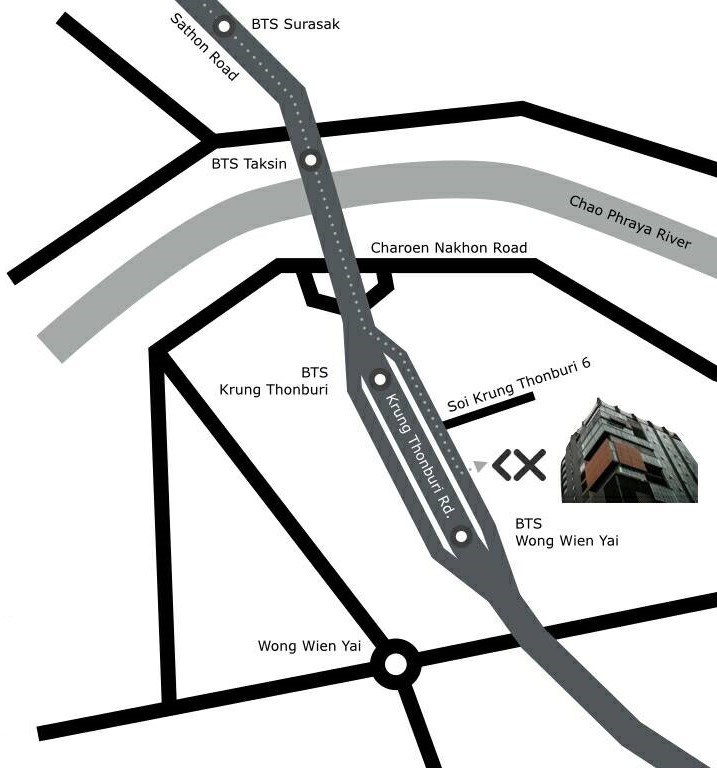
SPONSORS

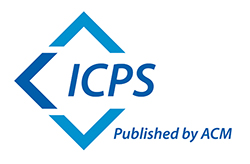
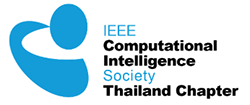


![]()

![]()
